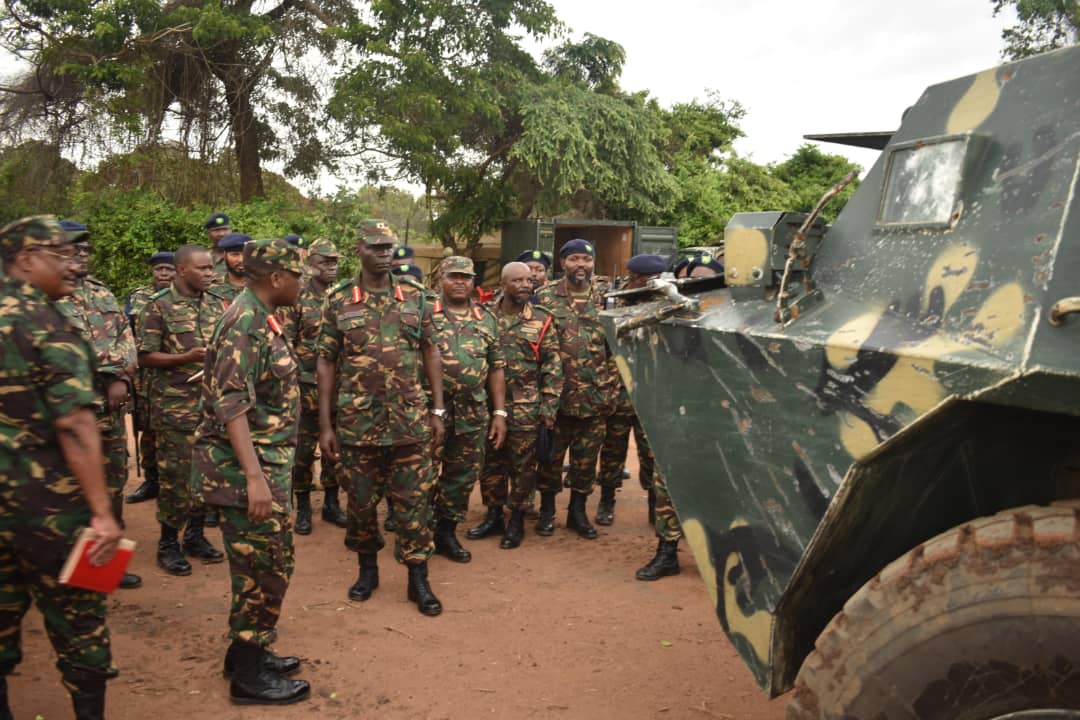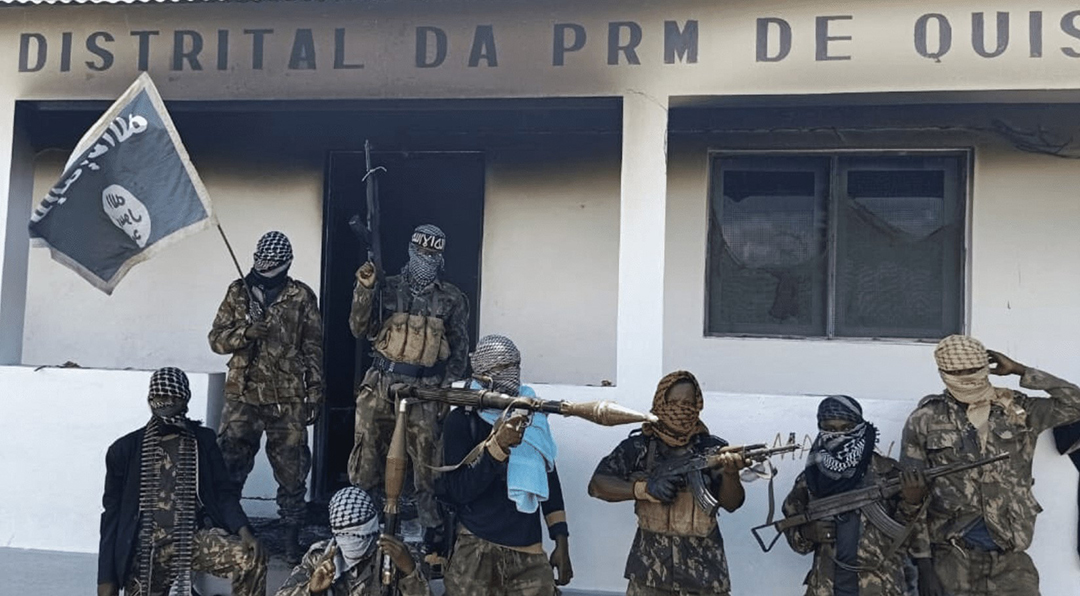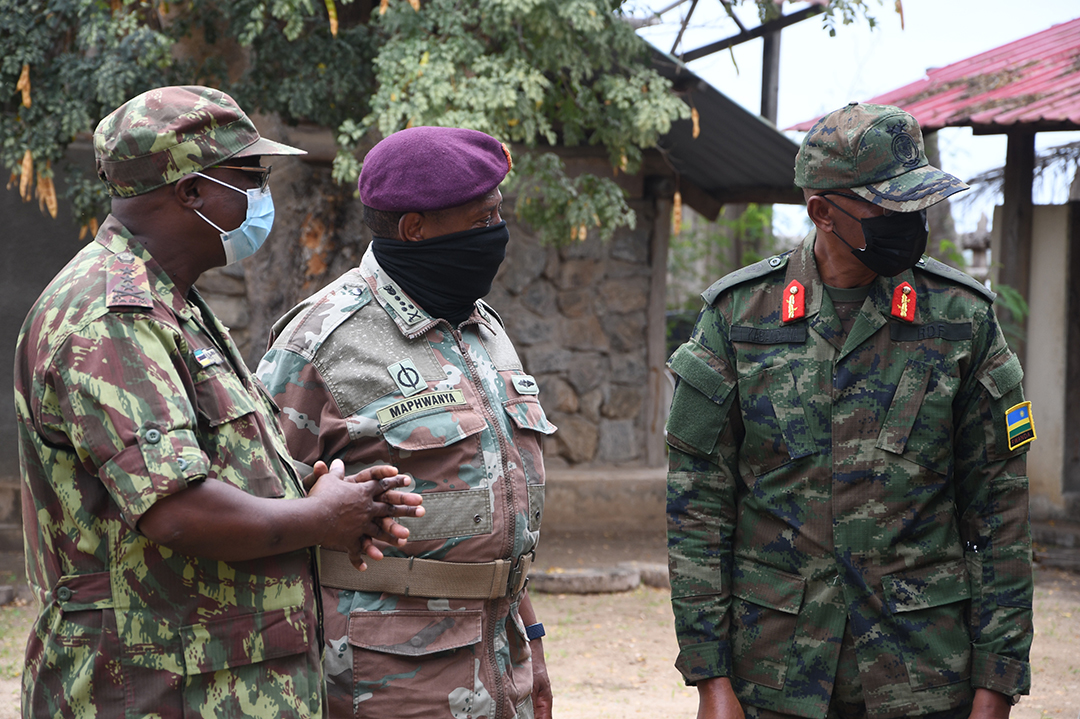Sustaining Security in Mozambique a Tall Task
ADF STAFF
Amid the many challenges of rooting out Islamist extremists from the dense forests of northeastern Mozambique lies another issue — how to sustain the joint military effort.
In addition to the Armed Defense Forces of Mozambique (FADM), military forces from the region and Rwanda were deployed in 2021 to the restive province of Cabo Delgado, where extremist insurgents have been terrorizing civilians for several years.
Since 2017, at least 3,600 people in the province have been killed by terrorists and more than 820,000 have fled their homes.
Progress has been made on the ground against Ansar al-Sunna, which is known locally as al-Shabaab but is not related to the Somalia-based terror group of the same name.

“After suffering defeats in Cabo Delgado last year, al-Shabaab withdrew some fighters from the area,” South African security expert Liesl Louw-Vaudran told The Irish Times newspaper. “They have re-emerged in Niassa — a province to the west of Cabo Delgado that borders Malawi — where they have been attacking and looting villages recently.”
Louw-Vaudran, senior researcher at the Institute of Security Studies, warned that troop levels and logistical equipment are less than what’s needed, while communication and collaboration among the three forces are lacking.
On January 12, the Southern African Development Community (SADC) renewed the mandate of its Standby Force Mission in Mozambique (SAMIM) for a second time. The regional bloc budgeted $29.5 million for the first half of the six-month extension.
When SAMIM was deployed in July 2021, South African President Cyril Ramaphosa said his country budgeted nearly a billion rand (more than $64 million) for its share of the first three months of the deployment.
SAMIM’s forces are roughly a third of the 2,916 Soldiers that the mission originally called for, and there are reportedly only two transport helicopters shuttling troops in and out of battle.
Of the nearly 1,500 personnel promised, South Africa has deployed just 300 special forces troops.
Although infantry troops are expected to reinforce SAMIM in the coming months, experts in South Africa warn that such deployments are not guaranteed because of financial and logistical constraints.
SAMIM has been funded by SADC member states thus far, but the regional bloc reportedly has reached out to international bodies for financial support.
Rwanda has also played a major role and has requested European Union funding to support its efforts. Reports from Cabo Delgado show 2,000 to 3,000 Rwandan Soldiers focused on the coast and specifically providing security for Mozambique’s natural gas reserves near the town of Palma.

“With the insurgents at this point effectively refusing to engage with Rwandan forces along that corridor, the conflict is increasingly becoming a three-way fight, with insurgents on one side and Mozambican and SAMIM forces on the other,” according to conflict observatory Cabo Ligado’s January 17-23 report.
The fractured nature of the current approach in Mozambique and a clear need for international funding has observers questioning whether the SADC can sustain its troop deployment long term.
According to the United Nations, 97 of its 393 humanitarian activities in the country are deployed in Cabo Delgado. From 1995 to 2015, the U.N. partnered with the African Union to lower the percentage of Mozambicans facing food insecurity from 61% to 24%.
With a history of joint peacekeeping operations on the continent, could the U.N. and the AU play a role in sustaining operations in northern Mozambique?
“The AU’s African Standby Force (ASF) is coordinated from Addis Ababa, [Ethiopia], and logically the regional standby forces should rely on AU Commission support and convening power,” Louw-Vaudran wrote on her organization’s website. “However, questions have been asked for some time about the ASF’s role in dealing with fast-changing and complex situations.
“Increasingly, AU officials call for ad hoc assistance from African countries to solve crises on the continent, especially violent extremism as seen in Mozambique.”
Although its future shape is opaque, the political will for the regional mission remains in place as evidenced by the recent remarks of SADC Chairperson and Malawian President Lazarus Chakwera.
“What remains now is for us to stay the course and stick together,” he said to open the SADC summit on January 12. “We cannot relent. We cannot regress. We cannot retreat.
“Our approach to this mission must continue to be multidimensional and comprehensive. It must not only focus on neutralizing the threat, but also have post-conflict plans to rebuild.”


Comments are closed.